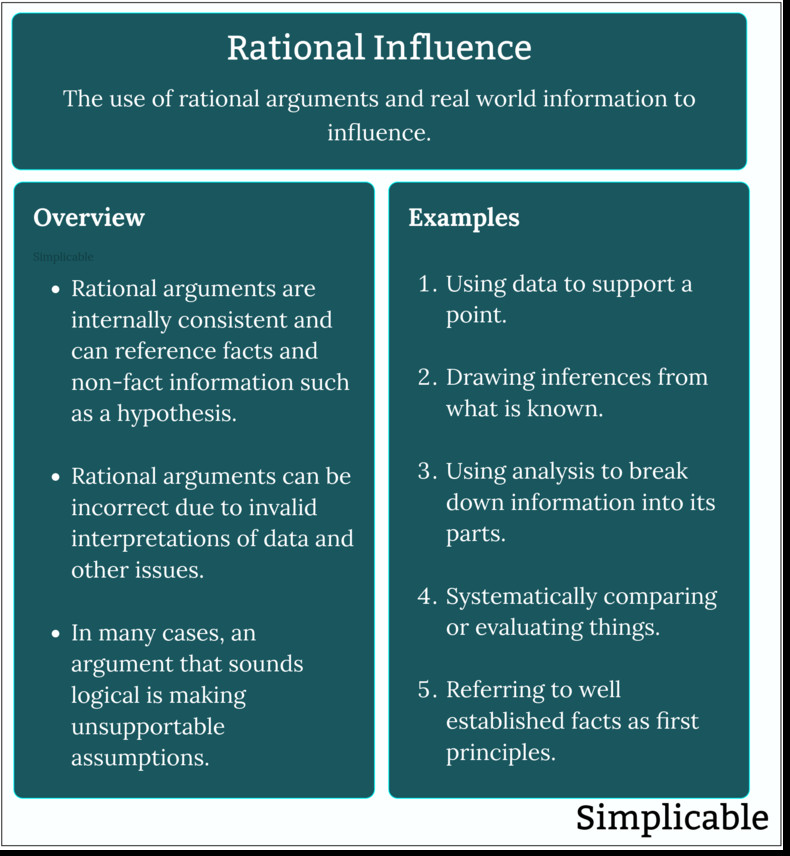|
| |
Rational influence is the effect of logic, data, information, knowledge and real world conditions on thinking and action. Logos, the use of rational arguments to influence, is one of the three classical modes of persuasion alongside pathos and ethos that are appeals to emotion and authority respectively. The following are common examples of rational influence.
Logical arguments | Reasoning | Data | Research | Analysis | Science | Social Sciences | Studies | Authoritative references | Facts | Comparative studies | Information | Forecasts | Estimates | Models | Hypotheses | Theories | Observations | Experiment results | Concepts | Knowledge | Standards | Experiences | Real world events | |
OverviewRational influence is the use of rational arguments backed by information about the real world to influence others. This is a classical mode of persuasion.Next: Personal Influence
If you enjoyed this page, please consider bookmarking Simplicable.
© 2010-2023 Simplicable. All Rights Reserved. Reproduction of materials found on this site, in any form, without explicit permission is prohibited.
View credits & copyrights or citation information for this page.
|























